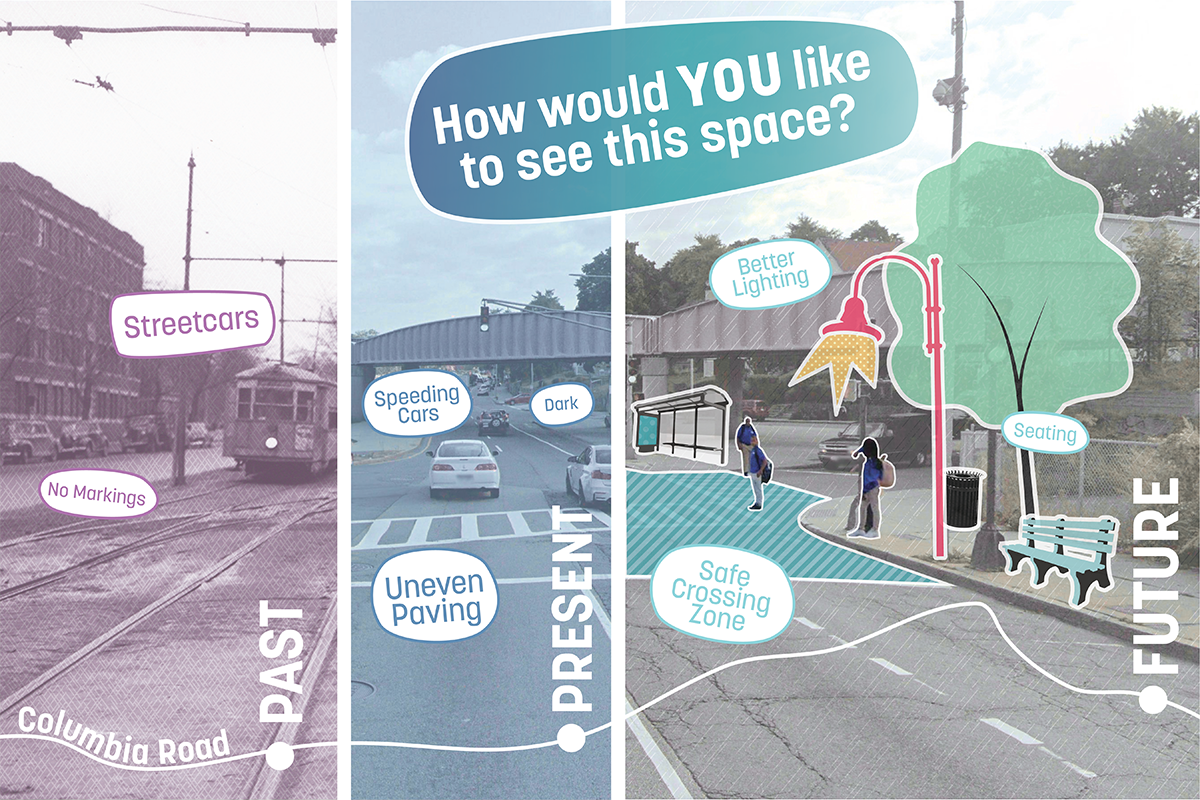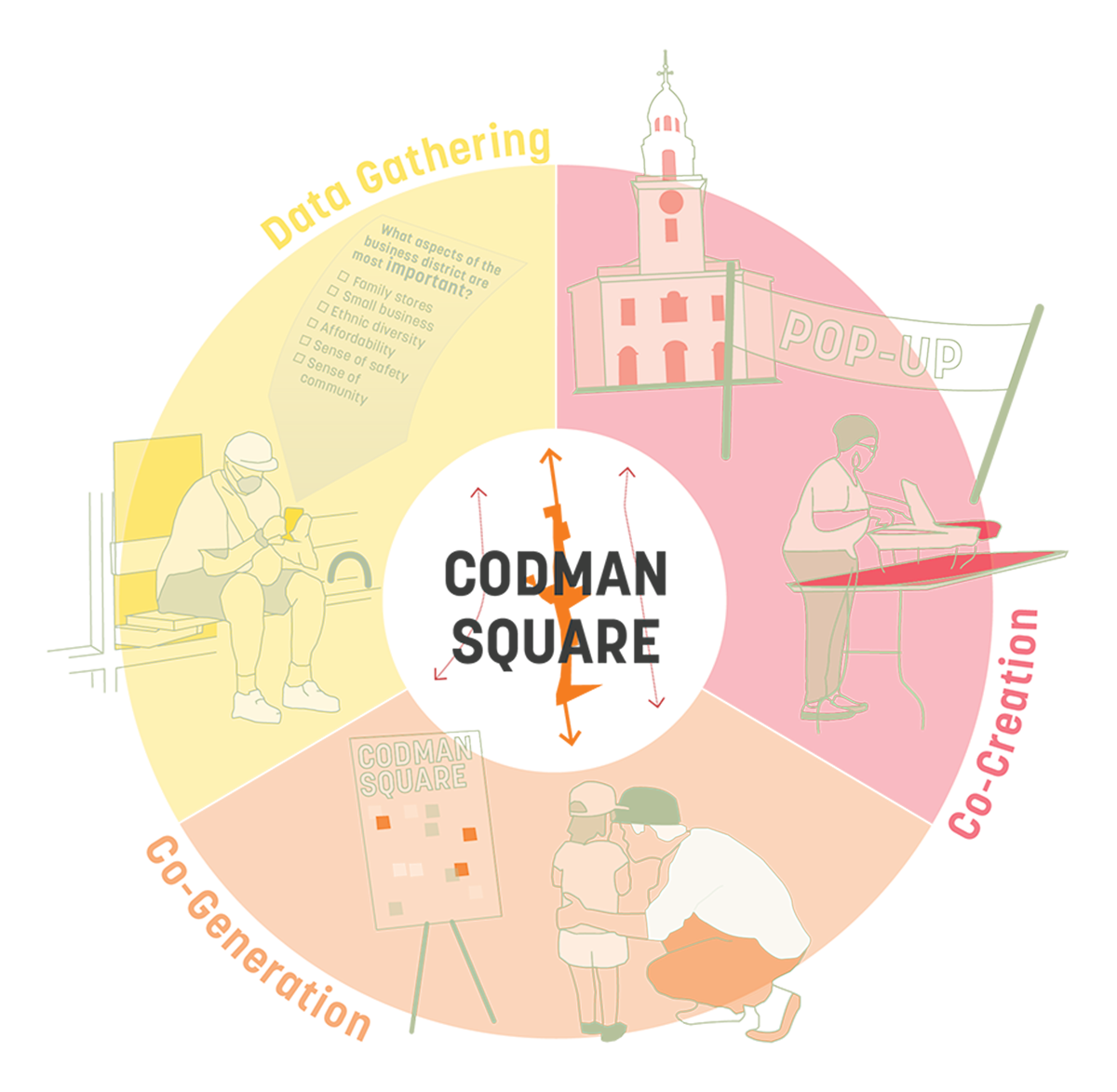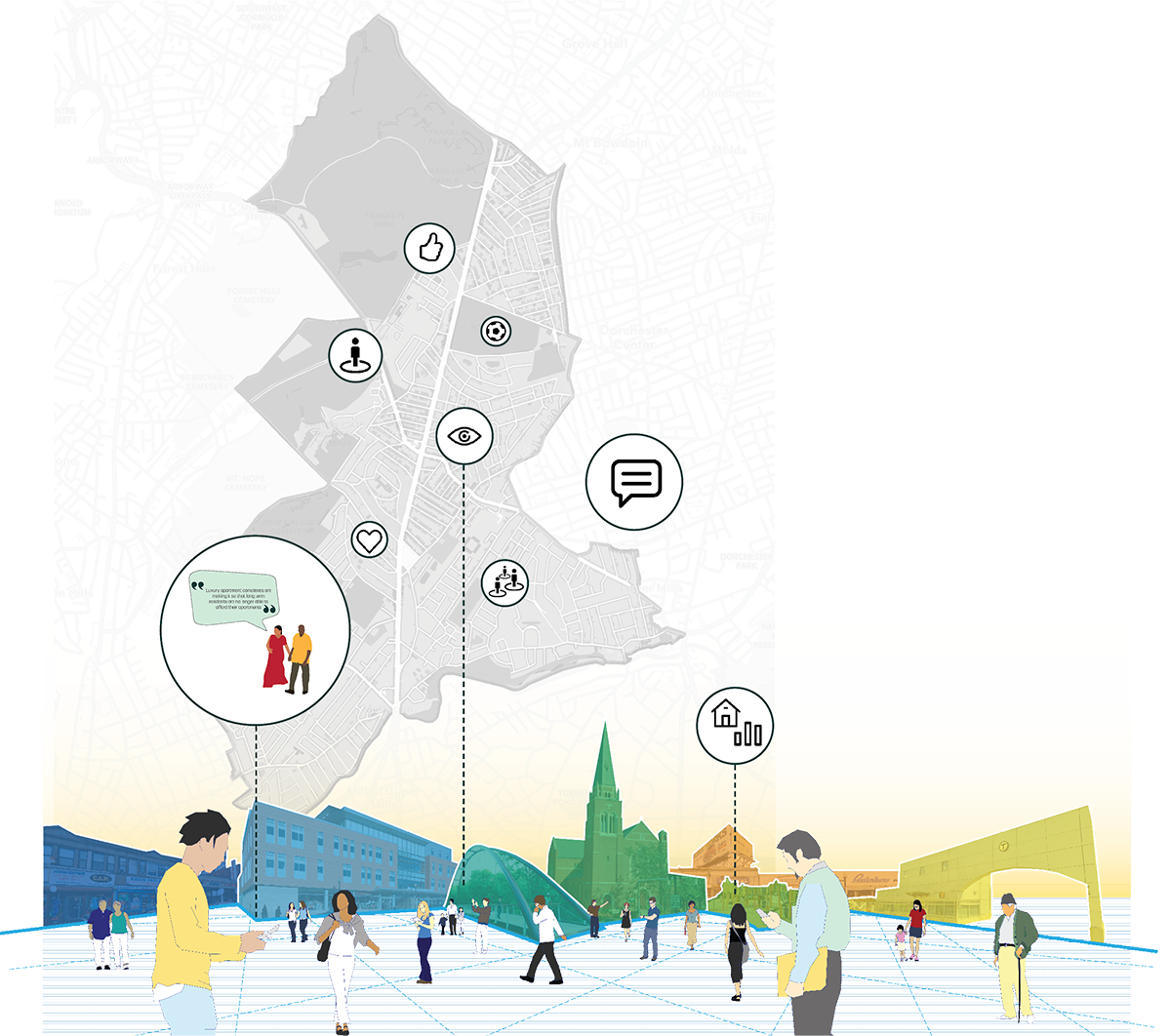Creative Community Building
The Columbia Road Gender and Mobility Initiative sits at the intersection between research, advocacy, and design. This project sought to understand the mobility limitations that stem from gender inequities and gendered experiences on the streets. The team examined how gender-disaggregated data can reveal mobility and design factors that address female, non-binary, and trans people’s needs and experiences.
The team recognizes that urban planning and design decisions have been made with a (non-existent) neutral person in mind. However, every person’s mobility experience is unique.
Composed of advocates, academics, and community leaders, the team wants to create an equitable and welcoming Columbia Road. They understand that people—including all of their multiple identities—need to be at the center of the conversation and that we should all be able to move safely and comfortably throughout our neighborhoods.
Visit the team’s website and learn more about the LivableStreets Alliance and the Dorchester Bay Economic Development Corporation.


Codman Square project process
The Corcoran Center Urban Action Lab developed recommendations over the course of the 2020-2021 academic year as part of an ongoing project, supported by a Sasaki Foundation Design Grant, to strengthen the Codman Square Business District. Students and professors from the Corcoran Center for Real Estate and Urban Action conducted research in several forms to ensure the proposals for economic development considered legitimate neighborhood input and reflected neighborhood data. These methods of study included interviews with local businesses, an anonymous residential survey, a vacancy analysis, a demographic study, and several meetings with local community-based organizations.
Realizing the strengths and potential opportunities for growth and development, the research team sought to reinforce strengths and build on opportunities that are generated from expressed community interests. With design thinking and emergent strategy at the core of the project, the team co-created a series of prototype recommendations that are representative of ideas that are low cost, implementable across a short time window, and tests of ideas and concepts that can be improved and scaled as practical. Prototypes provide an opportunity to explore what works and what is responsive and acceptable to a given context.
Through prototyping and reinforcing projects that demonstrate incremental success, programs can be implemented. The recommended economic development prototypes center on three core themes: mobilize the business district; encourage homegrown businesses; and give them a reason to stay. These prototypes present a strong foundation for community stakeholders, mobilized by Codman Square Neighborhood Development Corporation (CSNDC) and supported by Boston College, to advance community-led economic development in Codman Square.
Visit the team’s website and learn about the Codman Square NDC and the Joseph E. Corcoran Center for Real Estate and Urban Action at Boston College.
The Mattapan Mapping Project is a community-based initiative that collects and shares resident stories alongside quantitative and spatial data about how Mattapan is changing with respect to development, policy and planning, and community organizing. By providing diverse, relevant, and coherent information on a single open-source online platform, the project seeks to empower residents to take civic action and advocate for equitable policy and urban development.
The Mattapan Mapping Tool is a creative and user-friendly online mapping tool designed to track nuanced data—demographic and land use statistics, audio and video files, cognitive maps, alternative housing, and land use typologies—that affirm and amplify the place-knowing and spatial claims and aspirations of community members.
Participatory action research and community capacity building around data gathering, analysis, visualization, and narratives seeks to shift extractive practices of knowledge production and scholarship led by outsiders to democratic modes of knowledge creation and applied learning which are contextual, participatory, and change-oriented.
Participatory planning engages Mattapan community members in using multi-faceted data to inform and educate other residents, neighborhood and civic leaders, organizational and institutional representatives, researchers, planners, designers, policymakers, and city staff about displacement pressures and advocates for equitable development in Mattapan.
Since cultivating community knowledge for influential action is an emergent process, the project proceeds in three iterative phases:
- Community-informed Design: Greater Mattapan Neighborhood Council members and other residents informed the initial design of the tools and the prioritization of data collection.
- Community-engaged and Empowering: Residents are collecting and interpreting data to inform community education, planning, and advocacy while mobilizing their neighbors to join the effort.
- Community Ownership: Ultimately, Mattapan residents will co-lead the project to foster ongoing community learning that shapes Mattapan’s future while honoring its past and celebrating the present.
Visit the team’s website and learn about Powerful Pathways and the Greater Mattapan Neighborhood Council.

